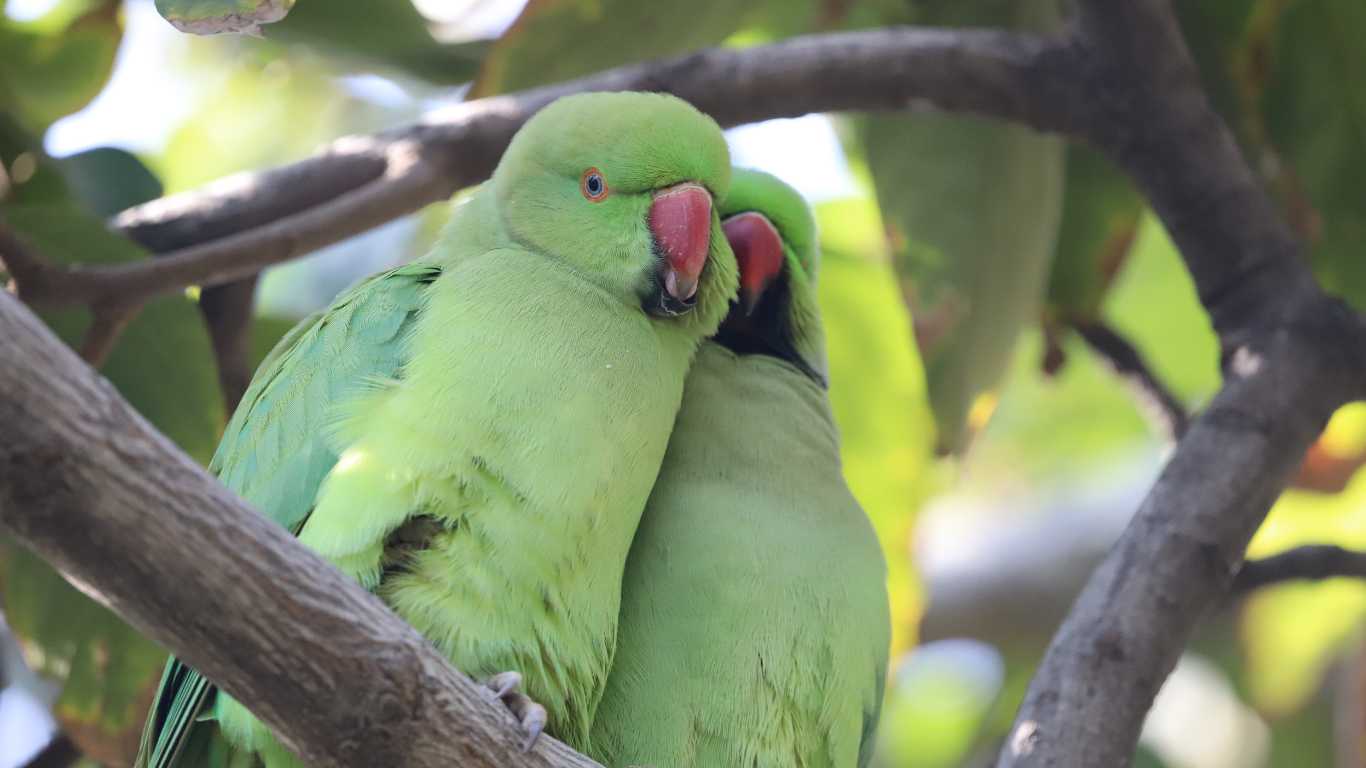Feather loss in ringneck parrots can be concerning for many bird owners. These vibrant and intelligent birds are cherished for their colorful plumage and playful personalities. When they start losing feathers, it can raise questions and cause worry. In this article, we will delve into the reasons behind why ringneck parrots experience feather loss and explore ways to address and prevent this issue.
Understanding Molting
What is Molting?
Molting is a natural biological process through which birds shed old and damaged feathers and replace them with new ones. This process allows parrots to maintain the health and quality of their plumage. Molting typically occurs annually, and the timing can vary based on factors such as the bird’s age, health, and environment.
Why do Parrots Molt?
Molting is essential for the overall well-being of parrots. As feathers age, they become worn and tattered, affecting the bird’s ability to fly, regulate body temperature, and display vibrant colors. Molting allows parrots to replace these feathers, ensuring optimal functionality and aesthetics.
Common Reasons for Feather Loss
Dietary Factors and Nutrition
It is essential to have a diet that is well-rounded in order to keep one’s feathers in good condition. Inadequate diet, particularly shortages in critical vitamins and minerals like vitamin A and protein, can contribute to poor feather quality and loss of feathers. Inadequate nutrition can also cause anaemia.
Environmental Stressors
Stressful living conditions can trigger excessive feather loss. Loud noises, abrupt changes in routine, limited social interaction, and cramped cages can contribute to stress, leading to the plucking of feathers.
Parasites and Health Issues
Parasitic infestations and underlying health problems, such as infections or hormonal imbalances, can manifest as feather loss. Checkups on a consistent basis are absolutely necessary for the early diagnosis and treatment of problems of this nature.
Proper Care and Nutrition
Providing a Balanced Diet
The health of your feathers may be substantially improved by eating a balanced diet that includes fresh fruits and vegetables, pellets of excellent quality, and even the rare treat. If you want to know what foods are ideal for your ringneck parrot, you should seek the advice of an avian veterinarian or specialist.
Maintaining a Clean and Stress-Free Environment
Creating a clean, organized, stimulating environment reduces stress and promotes feather preservation. Important components include consistent cage cleaning, the provision of stimulating toys, and the creation of opportunities for mental exercise.
Preventive Measures
Regular Health Check-ups
To ensure that your parrot’s general health is good, it is important to contact an avian veterinarian on a frequent basis. Professional guidance can help detect and address potential health issues before they escalate.
Grooming and Feather Care
The maintenance of healthy feathers requires proper grooming practices, including frequent bathing and the clipping of nails. However, avoid excessive trimming, as feathers aid in balance and mobility.
Stress Reduction Techniques
Implement stress-reducing strategies like maintaining a consistent routine, offering companionship, and providing a safe space for your parrot to retreat when feeling overwhelmed.
Seeking Professional Help
When to Consult a Veterinarian
If you notice persistent and extensive feather loss, consult an avian veterinarian immediately. Rapid or irregular feather loss may indicate an underlying medical condition requiring prompt attention.
Consulting an Avian Specialist
Avian behaviorists or specialists can provide valuable insights into behavioral causes of feather plucking. They can help identify triggers and recommend behavior modification techniques.
Addressing Behavioral Issues
Feather-Plucking as a Behavioral Problem
Feather-plucking is a self-destructive behavior often rooted in stress, boredom, or anxiety. Identifying the underlying cause is essential to addressing the issue effectively.
Identifying and Addressing Psychological Triggers
Understanding your parrot’s triggers, whether related to changes in routine, lack of mental stimulation, or loneliness, can help you develop strategies to mitigate these factors.
Gaining Trust and Bonding
Building a Strong Bond with Your Parrot
A trusting relationship minimizes stress and anxiety, reducing the likelihood of feather-plucking. Your parrot will benefit from you spending quality time with it, engaging in pleasant interactions with it, and training it via positive reinforcement.
Creating a Secure and Stimulating Environment
Enrich your parrot’s surroundings with interactive toys, varied perches, and opportunities for mental challenges. This prevents boredom and promotes mental and emotional well-being.
Conclusion
In conclusion, understanding the reasons behind feather loss in ringneck parrots is the first step toward effective prevention and intervention. You can ensure your feathered companion maintains a vibrant and healthy plumage by providing a nutritious diet, a stress-free environment, regular veterinary care, and addressing potential behavioral issues.
FAQs:
1. Is it normal for ringneck parrots to lose feathers?
Feather loss during molting is a natural process for ringneck parrots. However, extensive or sudden feather loss may indicate underlying issues.
2. Can diet affect feather health in parrots?
Absolutely. A well-balanced diet rich in essential nutrients is crucial for maintaining healthy feathers in parrots.
3. How can I prevent my ringneck parrot from plucking its feathers?
Preventing feather-plucking involves providing mental stimulation, a secure environment, and addressing potential stressors through positive reinforcement training.
4. When should I take my featherless parrot to the vet?
If your parrot’s feather loss is severe, continuous, or accompanied by other concerning symptoms, consult an avian veterinarian or specialist.
5. How can I build a strong bond with my ringneck parrot?
Building trust through positive interactions, spending quality time together, and using positive reinforcement can foster a strong bond with your parrot and reduce stress-induced behaviors like feather-plucking.
